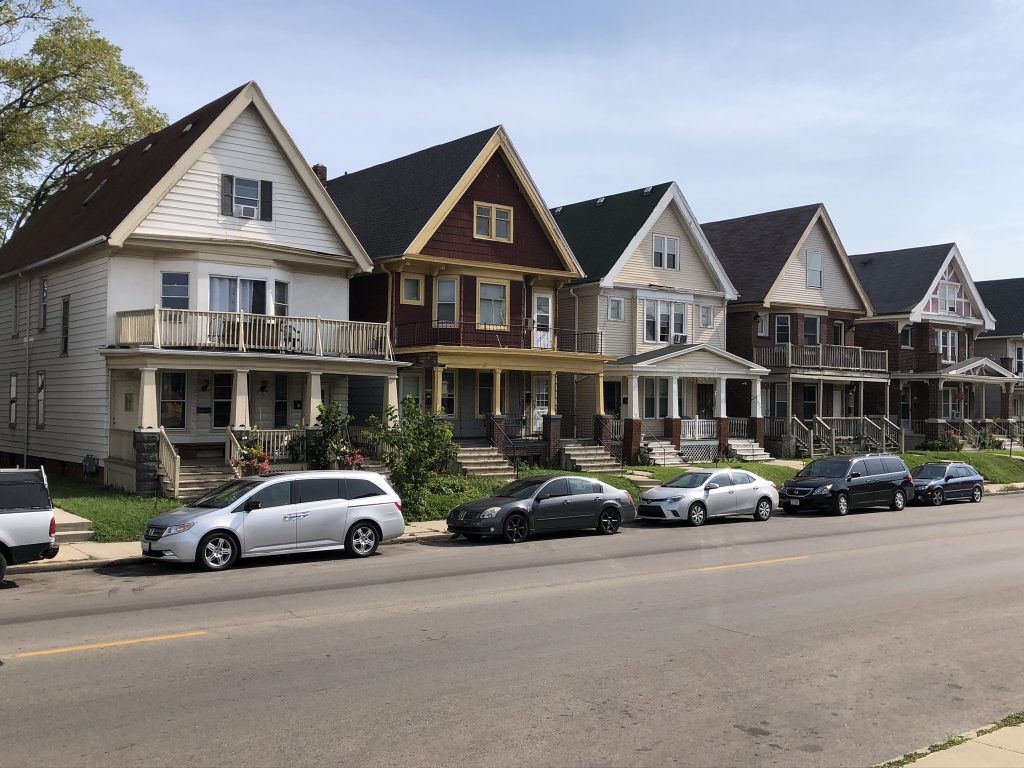Assessor Wants No Assessments in 2021
Proposal would freeze property values for two years.
Every year since 2002 Milwaukee property owners have received a letter in the mail indicating a change in the value of their property. The changes are based on comparable property sales and part of an annual assessment process.
In May, Assessment Commissioner Steve Miner told a Common Council committee that annual assessments are the “best way to keep the property tax fair and that’s the goal of the Assessor’s Office.” He reiterated that Monday before the council’s Judiciary & Legislation Committee, then recommended the city not conduct an assessment in 2021.
“Right now we are falling behind in our work because of the high number of appeals,” said Miner. A mixture of growing residential property values and the COVID-19 pandemic triggered the number of appeals to double to 5,592. The city extended the time property owners have to file an appeal, but it did not extend the deadline by which the appeals process must conclude under state law. Property values are, by state law, required to reflect the value of a property on January 1st.
Freezing assessments for at least one year would not prevent property tax bills from changing. The city and other property taxing entities could still raise or lower their mill rate, which would increase property tax bills proportionally. And when properties are assessed again the value changes would likely be bigger than under an annual process, a fact pointed out by council members. “We have seen a huge jump in one year, if we do a biannual that could double it,” said Alderman Ashanti Hamilton.
Miner said a staffing reduction in his office, down by about a third from 2002 to 43 employees, has made it difficult to keep up in a normal year.
“It is our recommendation that we should not do a reassessment in 2021 with the hope that sometime next summer we could revisit this and decide what’s our schedule going to be,” said Miner. “If we don’t add staffing or add resources in the form of technology it’s going to be too difficult to keep doing annual assessments.”
“There has been technological development in many fields over 20 years, has that come to the land of assessments as well?” asked Ald. Scott Spiker.
“We are now using Office 2013 and we have powerful computers on everyone’s desks, so that is a change relative to where we were 20, 25 years ago,” said Miner. “Changes in emails and communication have helped us be more efficient.” But those are nearly universal improvements common to any office.
“There are several advancements that are standard for the industry that we don’t have,” said Miner of specifics for assessors. He cited the example of a 2012 state standard that recommends having a photo of every property on file.
“As of right now we might have half,” said Miner of the photos. He said his office has a “very inefficient process” to collect them and doesn’t have the resources to contract an outside vendor to collect high-quality photos. He said having the photos would benefit other city departments. “That’s the kind of basic thing we don’t have in place.”
Another lacking feature is “desktop review” capability to digitally process permits and other property changes that are indicators of the need for a re-evaluation. Miner said a good standard would be to review 10 percent of the properties in the city every year. “These are the things that are typical for departments that we don’t do because we don’t have the staff.” He said the desktop review program would also create a pipeline for new appraisers and increase diversity within the department.
Miner said not executing an assessment would yield an annual savings of $60,000 from not having to mail an update to each property owner.
But Ald. Michael Murphy, the lone council member that was on the council when the city moved from biennial to annual assessments, said the council needs a detailed report of the impact of any changes. “What we are talking about is a serious amount of money here, it’s not the $60,000,” he said.
New construction would still be assessed as it happens, but Miner said the city would need to “ratio it down,” a formula by which the city must reduce the assessment to reflect how much the assessments for other properties are under the market value. If property values continue to rise over the two years while assessments are frozen the ratio would fall lower and lower, reducing the value of new construction.
Under state law the city can only increase its property tax levy by the value of new construction, so having to lower, even temporarily, the value of new construction would hurt the city’s ability to generate new revenue. Miner said the impact of having to lower values of new construction inside tax incremental financing districts is something that would need to be studied. He promised to get back to Murphy within a week on next steps.
Under state law, changing the assessed values of existing property does not increase or decrease the amount of money a city is able to collect, but does impact what share of the property tax levy each property owner pays. Residential property assessments went up an average of 11.95 percent across the city in 2020, but some areas saw declines while others saw increases.
The Common Council would ultimately need to approve the change, likely through its 2021 budget. Miner said he expects Mayor Tom Barrett to include the change in his executive budget proposal, due September 22nd.
Legislation Link - Urban Milwaukee members see direct links to legislation mentioned in this article. Join today
If you think stories like this are important, become a member of Urban Milwaukee and help support real, independent journalism. Plus you get some cool added benefits.
Political Contributions Tracker
Displaying political contributions between people mentioned in this story. Learn more.
City Hall
-
Council Blocked In Fight To Oversee Top City Officials
 Dec 16th, 2025 by Jeramey Jannene
Dec 16th, 2025 by Jeramey Jannene
-
Latest Effort to Adopt New Milwaukee Flag Going Nowhere
 Dec 3rd, 2025 by Jeramey Jannene
Dec 3rd, 2025 by Jeramey Jannene
-
After Deadly May Fire, Milwaukee Adds New Safety Requirements
 Dec 2nd, 2025 by Jeramey Jannene
Dec 2nd, 2025 by Jeramey Jannene






















